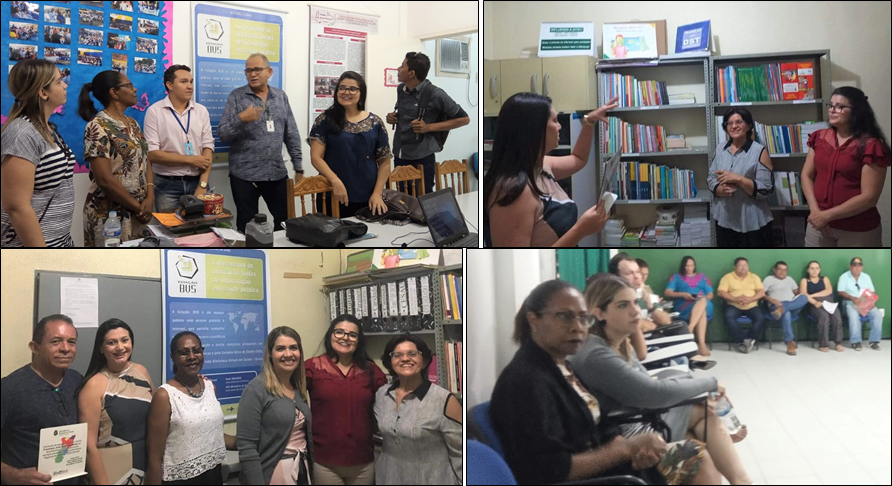Ceará state received two Virtual Health Library Stations (VHLS): one on December 2nd, in the city of Itapipoca, in the 6th Regional Health Coordinating Body (6th CRES) of the State Secretariat of Health of Ceará (SES/CE); and the other on December 3rd, in the 5th CRES of SES/CE, in Canindé. Consequently, Brazil now counts on 105 VHLS, with 12 of them in Ceará.
Representing the Ministry of Health on the two inaugurations of the VHLS were General Coordinator of Documentation and Information, Soraya Zacarias, the Coordinator of Technical and Scientific Information, Shirlei Rodrigues, and Librarian Sandra Cristina Teixeira, responsible for the VHL of the Ministry of Health (VHL MS).
The VHL Station is a project of the Ministry of Health, carried out through the General Coordination of Documentation and Information (GCDI) in cooperation with the Latin American and Carribean Center on Health Sciences Information of the Pan American Health Organization/World Health Organization (BIREME/PAHO/WHO), being that its principal objective is to contribute to equitable access, the strengthening and amplification of the use of scientific and technical information sources in the Unified Health System (SUS). As such, it seeks to incentivize the use of the VHL by researchers, students, managers and health professionals, as well as the general public. The idea is that these people do research at the VHL, which is a reliable source of information, whenever the subject is health.
 VHLS are physical spaces, usually located within libraries or study centers, containing two or three computers with internet access. These are places open to the public for research on the VHL Network and where a professional is available to guide the search and answer questions, in case of need by the user.
VHLS are physical spaces, usually located within libraries or study centers, containing two or three computers with internet access. These are places open to the public for research on the VHL Network and where a professional is available to guide the search and answer questions, in case of need by the user.
The objective of the project is to boost teaching, research and expand open access to health information. Through the VHL, users will be able to consult more than 28 million technical and scientific documents, such as scientific articles, journals and monographs, all available in the various databases of the Virtual Health Library. The aim is that this quality information will provide assistance to managers, professionals and researchers, being an aid to decision-making in health.
Learn More
The VHL Network encompasses Virtual Health Libraries from countless Latin American and Caribbean (LA&C) countries as well as themes, and its users have access to content from national and international sources of information, bibliographic references and databases, such as LILACS (Latin American and Caribbean Literature on Health Sciences) and MEDLINE (International Literature on Health and Biomedical Sciences), in addition to the DeCS (Descriptors in Health Sciences), and the database SUS Collects (National Collection of Information Sources of SUS), among others.
Globally recognized as a tool for the wide dissemination of technical and scientific information on health, the VHL model was developed and is regionally coordinated by BIREME/PAHO/WHO. The VHL is coordinated by BIREME and is built collectively by the cooperative work of all participating countries, which feed the databases of various existing virtual libraries with local technical and scientific productions. Among the VHL Network countries, Brazil is the most active, with most of the stored and published content.
The text was contributed to by Priscila Campos – Internal Disclosure Team SAA/SE/MS